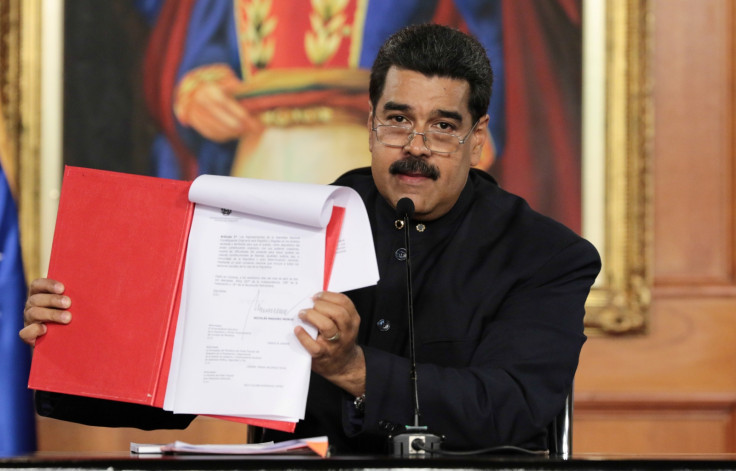Venezuelan President Maduro calls for a rewrite of the constitution
The government's opponents and critics say Maduro's move towards a constitutional shake-up is a 'coup'.
Venezuelan President Nicolas Maduro has called for rewriting the country's constitution in a bid to quell the ongoing protests against his government. The embattled president's announcement was quickly decried by opposition leaders and critics.
Maduro has been struggling to come up with various measures to ease the situation in the Latin American nation, where anti- and pro-government protests and clashes enter the second month, but with little success. Millions are suffering from chronic food shortages and cannot afford basic medicines due to the economic crisis in the oil-rich country – a situation which opponents squarely blame on the 18-year rule of socialists.
Against the backdrop of intense political unrest, Maduro said the constitutional shake-up will be overseen by a citizens' body, officially labelled the "Constituent National Assembly". Political parties would not be representing the constitution-drafting entity, he said. A total amendment of the constitution would not just allow Maduro to recalibrate the country's legislative body but also potentially help him redefine the president's executive powers.
"I convoke the original constituent power to achieve the peace needed by the republic, defeat the fascist coup and let the sovereign people impose peace, harmony and true national dialogue," the Venezuelan president said in a televised address to mark International Workers' Day. His plans may have been inspired by his predecessor, Hugo Chavez, who set up a similar body in 1999 to redraft the constitution, which was then passed by a referendum.
"Exercising this right, (the people) can call a constituent national assembly with the objective of transforming the state. We need to transform the state, above all the rotten national assembly we have there! [We need to] create a new judicial order and to write a new constitution," Maduro told his supporters.
Both pro- and anti-government campaigners took to the streets even on 1 May continuing their weeks-long rallies, which have so far claimed 30 lives.
Maduro's announcement was strongly criticised by his critics, who called the step a "power-grab" and "coup", especially when his political opponents are demanding general elections.
"I am saying with no exaggeration this is the most serious coup in Venezuelan history. Nicolas Maduro is dissolving democracy, dissolving the republic. In the face of that, the MPs of our national assembly and the Venezuelan people are called on to revolt," the president of the National Assembly Julio Borges said.

© Copyright IBTimes 2025. All rights reserved.






















